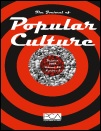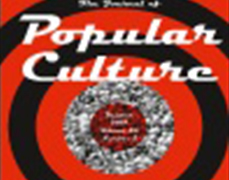본문
Cosmopolitan Practice, Asian Otherness, and a Localized Cosmopolitanism in Guy Delisle's Asian Travelogues
by Prof. Joon Ho Hwang ( joonhohwang@ewha.ac.kr)
Department of English Language and Literature

This article discusses the possibility of a localized cosmopolitanism throughout the examination of Guy Delisle’s graphic travelogues of Asia. His Shenzhen, Pyongyang, and Burma Chronicles are possibly the most outspoken and expressive single-authored graphic travelogues about contemporary Asia. Inventing his own caricature, Delisle portrays the inside of lesser-known Asian others’ lives with a humorous and sometimes sarcastic tone. His travelogues do not always present entertaining stories as conventionally expected from the genre of comics. When the western gazer in the form of the Delisle character highlights sensitive issues for the Asian reader, such as poor working and living conditions, violations of human rights, failures of political justice, and the seeming strangeness of cultural differences, there is room to critique the simplification of local conditions and the articulation of a contemporary version of Asian otherness.
Given the legitimacy of the criticism, however, it should be noted that Delisle’s Asian travelogues are complex enough to provide an opposite interpretation as the character’s struggle with local Asians creates an environment conducive to cosmopolitan mutual understanding. The three comics, Shenzhen in particular, effectively encompass the significance of border and culture as a force of cosmopolitan encounters while the Delisle character interacts with local others. The interactions lead him to the “[r]ecognition of the perspective of the other,” which can be considered “the key to cosmopolitanism” (Delanty and He 328), and eventually to the forming of a mutual understanding between “them” and “us,” even if that understanding is ephemeral. Mutual understanding is a focal point in the recognition of a localized cosmopolitanism in which a locality is not a supplementary element that ornaments cosmopolitan encounters but rather one that determines the form and content of cosmopolitan practices.
Local factors incorporated into cosmopolitan discourses thus can provide “a more concrete form in a specific methodological approach, the aim of which is to discern and assess empirical expressions of cosmopolitanism” (Delanty and He 328). The “concrete form” and “empirical expressions of cosmopolitanism” are embodied in Delisle’s Asian travelogues through “specific connections—political and economic, as well as cultural—among people” in particular historical, cultural, and social settings, which serve to “ground” cosmopolitanism since mutual understanding is based on social interactions (Calhoun 112-13). Simultaneously, however, social settings may not always ensure cosmopolitan values due to conflicting interests and bias rooted in local customs.
In this vein, a localized cosmopolitanism may appear to be a “partial, fragile cosmopolitanism,” engendered by “an uncertain dialectic between aspirations and practices” (Amit and Barber 545). Yet this type of cosmopolitanism does not necessarily mean the recession or failure of cosmopolitan visions but raises the need to deem a cosmopolitan practice as a continuing process embodied in diverse forms and contents. This complexity, if not contradiction, is reinscribed in Delisle’s graphic travelogues in which cosmopolitan practices actually border on anti-cosmopolitan perspectives. Instead of envisioning the realization of cosmopolitanism, Delisle’s stories show us a cosmopolitan possibility by repositioning borders and cultures in our daily lives as the basis of connecting different individuals in this small world.

* Related Article
Hwang, Joon Ho, “Cosmopolitan Practice, Asian Otherness, and a Localized Cosmopolitanism in Guy Delisle’s Asian Travelogues.” The Journal of Popular Culture, vol. 50, no. 5, 2017, pp. 1087-1106.
Amit, Vered and Pauline Gardiner Barber, “Mobility and Cosmopolitanism: Complicating the Interaction between Aspiration and Practice.” Identities: Global Studies in Culture and Power, vol. 22, no. 5, 2015, pp. 543-50.
Calhoun, Craig, “Cosmopolitanism in the Modern Social Imaginary.” Daedalus, vol. 137, no. 3, 2008, pp. 105-14.
Delanty, Gerard and Baogang He, “Cosmopolitan Perspectives on European and Asian Transnationalism.” International Sociology, vol. 23, no. 3, 2008, pp. 323-44.
